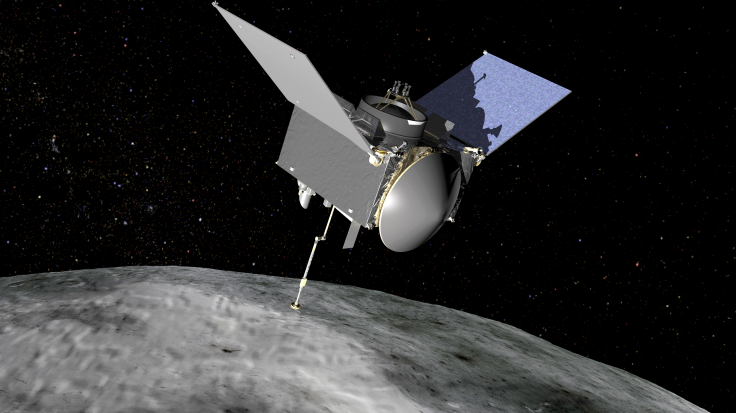OSIRIS-REx, NASA’s Asteroid-Bound Sample Recovery Spacecraft, Gets A Launch Date

OSIRIS-REx, NASA’s first spacecraft designed to travel to a near-Earth asteroid, will be launched from the Cape Canaveral Air Force base in Florida at 7:05 p.m. EDT on Sept. 8, the space agency said in a statement Wednesday. The Origins, Spectral Interpretation, Resource Identification, Security-Regolith Explorer will travel to the near-Earth asteroid Bennu with the aim of mapping its surface and identifying, collecting and returning pristine samples of high science value.
“This mission exemplifies our nation’s quest to boldly go and study our solar system and beyond to better understand the universe and our place in it,” Geoff Yoder, acting associate administrator for NASA’s Science Mission Directorate in Washington, said in the statement. “NASA science is the greatest engine of scientific discovery on the planet and OSIRIS-REx embodies our directorate’s goal to innovate, explore, discover, and inspire.”
The 4,600 pound spacecraft, which will be launched aboard an Atlas V 411 rocket, will reach the asteroid in 2018. After a careful survey of the asteroid’s surface in the visible and infrared spectrum, a robotic arm will collect between 2 and 70 ounces of sample material and return it to Earth via a detachable capsule in 2023.
“The launch of OSIRIS-REx is the beginning a seven-year journey to return pristine samples from asteroid Bennu,” OSIRIS-REx Principal Investigator Dante Lauretta said in the statement. “The team has built an amazing spacecraft, and we are well-equipped to investigate Bennu and return with our scientific treasure.”
For astronomers, studying asteroids is one of the few ways they can hope to glean how the solar systems and planets evolve. Unlike the rocks on Earth, which have, over its 4.5 billion-year history, become contaminated, asteroid material is pristine, giving us a glimpse of what the solar system was like in its infancy.
Bennu, an asteroid with a diameter of just over 1,640 feet, was chosen because of its accessibility, size and composition. Scientists expect Bennu to hold vital clues to the origin of water and organic molecules that may have made their way to Earth, eventually creating conditions needed for life to exist.
NASA estimates that the asteroid, which comes very close to Earth every six years, has a “high probability” of affecting the planet sometime in the late 22nd century.
© Copyright IBTimes 2024. All rights reserved.












